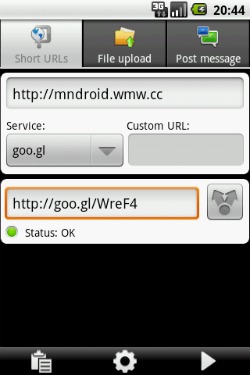I used to carry a GPS logger to keep track of where I’d been, but that tended to be expensive when I’d lose or run over the loggers, and the data wasn’t necessarily in a format where I could easily use it. There are GPS loggers for Android, but none of them worked very well for my purposes, so I stopped tracking my location for awhile.
A few weeks ago, however, I discovered backTrack Personal Travel Log for Android. backTrack uses GPS and WiFi access points to figure out where your phone is, and then gives you the option to log that information to Google Calendar. What is nice — and occasionally frustrating — is that backTrack only logs places you’ve visited for at least 5 minutes (this is a variable that the user can set, but 5 minutes is the fewest minutes it offers).
So, backTrack does not give me a record of my 10 minute drive to work. What it does do, however, is once I’ve been in my office for more than 5 minutes, it notes that. Once it detects I’ve left my office, it then creates an entry in my Google calendar showing an appointment spanning the time from when I arrived to when I left. It allows me to configure templates for place, so I can tell it if it detects my home WiFi, that place should be called “Home” in the information it writes to my Google Calendar.
The app is free an overall works very well. Some reviews complain about issues with accuracy, but so far I haven’t notice any issues with that. Of course a bigger issue is the potential misuse of such location data, especially once it is logged in Google Calendar. For me, the potential drawbacks are more than offset by the benefits, but your mileage may vary.


